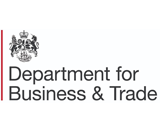Government Services Copycat Scammer Sentenced
Government Services Services Copycat Scammer Sentenced
- Two people behind 40+ websites imitating government services sentenced
- Research finds a third of Brits are at risk when searching for government services online
Copycat website warning as 17% of those who paid for government services online fined
Two men who ran more than 40 misleading websites that tricked people into overpaying for government services, including for the Dartford Crossing and the London Ultra Low Emission Zone (ULEZ), have been sentenced today at Bristol Crown Court following an investigation by National Trading Standards (NTS).
The elaborate scam saw the men charging inflated prices for services such as road tolls and fishing licences* via multiple websites designed to mislead consumers into thinking they were on the ‘official’ site. The defendants used sponsored links and Google ads to push their sites to the top of online search results, which is why today, NTS is urging people to go to GOV.UK to find government services online.
Both pleaded guilty in September 2025 to fraudulent trading between 1 January 2018 and 19 November 2019. The investigation was led by the National Trading Standards eCrime Team, which is hosted by North Yorkshire Council and City of York Council. The sentences handed down today were as follows:
- Thomas William Gall (aged 42, of Avon Farm, Saltford, Bristol) received a custodial sentence of 2 years and 3 months and a 10-year director disqualification.
- Shezad Parvez (aged 46, of Cookham Road, Maidenhead), was received a 2-year sentence (suspended for 2 years), 200 hours of unpaid work in the community and up 20 rehabilitation activity days. He has also been disqualified from being a director for six years.
Sometimes Gall and Parvez would pay the official body and pocket the difference, for example ‘paydartfordcrossing.co.uk’ charged £7.50 per crossing instead of the £2.50 official price. Often though, no payment would be made and more than 780 penalty charge notices (PCNs) were issued in just eight months to customers who had used the defendants’ various websites to pay the Dart Charge. While all PCNs were cancelled once reported and customers supported, this caused significant stress and confusion and consumed public resources - costing taxpayers time and money. The defendants even charged for government services that were actually free, with customers paying £19.99 to register a SORN (Statutory Off Road Notification) with the DVLA.
The defendants’ websites, which generated over £2.25m in revenue from customers, each followed a similar format, with disclaimers buried in the small print. Upon realising they had been duped, many victims complained and cancelled their payments, which led various payment service providers to raise the alarm. Google also suspended multiple advertising accounts but, despite repeated warnings from Trading Standards, the defendants did not stop trading.
Following today’s sentencing National Trading Standards has released new research which shows that more than a third (34%) of Brits would look in the wrong place for government services online, such as doing a Google search, using social media or clicking on an ad. These methods place consumers at high risk of being caught out by the copycats.
And of those who’ve applied for government services online, 17% have received a fine due to non-payment of something they know they paid for. More than a quarter (26%) have paid a handling charge – which are not needed if you pay the government body directly – and one 1 in 5 have paid more than they expected to for the service.
Mike Andrews, head of the National Trading Standards eCrime Team said:
“What drove this pair was pure greed. Despite multiple warnings they persisted in fleecing thousands of innocent people who were just going about their business. I’m really pleased with today’s outcome, and proud of our teams who work hard to remove misleading websites and bring the criminals that operate them to justice.
“It’s clear from our research that huge numbers of people are paying over the odds on copycat websites. We urge people to use GOV.UK, the easiest and most secure place to find government services online, and to report suspected misleading websites to the Citizens Advice consumer service on 0808 223 1133.”
The main government services targeted by the defendants in this case included paying the Dart Charge (managed by National Highways).
A National Highways spokesperson said:
“We understand how frustrating and upsetting it can be for people who’ve unknowingly used unofficial websites and ended up paying more – or worse, receiving a penalty notice. That’s why we’ve worked closely with Trading Standards to take action against these fraudulent operators.
"These prosecutions demonstrate the importance of working together to protect customers. We’ll keep supporting anyone affected and remind people to always use the official Dart Charge site on GOV.UK.”
Another key service targeted was the London Ultra Low Emission Zone (ULEZ) charges, operated by Transport for London (TfL).
Christina Calderato, TfL’s Director of Strategy, said:
“These individuals have used copycat websites to rip people off and betrayed the trust of those honestly trying to pay road user charges in London. Not only have the victims of these scams been unable to pay for the charges they incurred but they have had the stress of receiving fines as result of this fraudulent activity. We welcome this sentencing and hope those affected find some comfort in these criminals being brought to justice. This prosecution by National Trading Standards sends a message to those considering similar malicious activity: you will be caught and you will face the consequences of your actions.
“We continue to urge drivers to only pay through the official Transport for London website and anyone affected by such scams should report it.”
The National Trading Standards eCrime Team is hosted by North Yorkshire Council and City of York Council.
North Yorkshire Council's executive member for managing our environment, Cllr Richard Foster, said:
“Copycat websites are a cynical attempt to exploit public trust.
“These sites trick hard-working people into paying inflated fees for services that are usually cheaper, or even free, from genuine central and local government channels.
“The sentences handed out to these criminals send a clear message that misleading the public for profit in this way will not be tolerated.”
Cllr Jenny Kent from City of York Council, said:
“This conviction is really welcome and is down to the hard work and persistence of the e-crime team.
“Their diligence has resulted in a welcome conviction of criminal fraudsters, and helped protect the rights of drivers who believed they were using a legitimate website for road tolls and other charges. The number of choices can be confusing – always check that you are using a legitimate website ending in gov.uk before paying.”
Consumer advice When applying for government services online Unless you know the exact URL, always start your search at GOV.UK, where you can apply directly for some services or get safe links to the official websites. If you do a general search, don’t just click on the first result as it might be a paid link. If in doubt, go to GOV.UK and search from there. Don’t click on adverts promoting the service on search engines or social media. As an additional tool, you can check a URL using a URL checker to see if it’s listed as a scam site. Whilst it is not illegal for third parties to offer a check-and-send-style service for government applications and payments, they must make it explicit that they are not the official website. It is always easiest, cheapest – and safest – to apply directly via the official government body. If you think you’ve paid a copycat website Try and get a refund from your credit or debit card company. Report the website to the Citizens Advice consumer service on 0808 223 1133. If you can take screenshots or photos these could provide good evidence in case criminals later delete websites to hide their activities.
Useful pages on GOV.UK:






